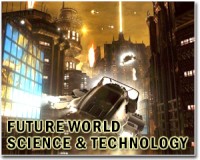 |
Cambridge, Mass. (UPI) Nov 10, 2010 The percentage of U.S. students in the class of 2009 with advanced skills in math is lower than in most of the world's industrialized nations, a study found. The study, sponsored by the journal Education Next and Harvard University, says the United States ranked 31st out of 56 countries in the percentage of students performing at a high level of accomplishment, a Harvard release reported. The study shows only 6 percent of U.S. students perform at the advanced level in math, compared with 28 percent of Taiwanese students and more than 20 percent of students in Finland and South Korea. In a state-by-state analysis of the percentage of students performing at advanced levels, the study found most U.S. states rank closer to developing countries than to developed countries. Thirteen developed countries have more than twice the percentage of advanced students as does the U.S., including Germany, Canada, the Czech Republic, Japan and Austria, the study found. "Public discourse has tended to focus on the need to address low achievement, particularly among disadvantaged students, and bring everyone up to a minimum level of proficiency," Paul E. Peterson of Harvard University said. "As great as this need may be, there is no less need to lift more students, no matter their socioeconomic background, to high levels of educational accomplishment."
earlier related report University of Illinois education Professor Arthur Baroody says the program, Number Sense, can build on a child's natural tendency to see out patterns and relations to learn simple mathematical reasoning strategies, a university release reports. "Everyone agrees that kids need to learn the basic facts, but there's far less agreement among educators about how this can best be accomplished," Baroody said. "Many drill and practice programs have been developed to help kids memorize the basic combinations by rote. The theory is that if children hear or practice 9 plus 7 equals 16 repeatedly, they'll eventually just remember it." But while most kindergarteners can count and know the number that comes after 7 is 8, many children can't readily specify that 7 plus 1 is 8, and they either count to determine the sum, guess or don't respond, Baroody said. "However, once children connect with their existing knowledge that adding 1 results in the next number in the counting sequence, they can reason out any adding-1 combination, including those they've never practiced before," Baroody said. "As children practice this reasoning strategy, it eventually becomes automatic and they can figure out any add-1 sum very efficiently." Similarly, adding 8 or 9 to another number is "notoriously difficult for children to solve," Baroody said, but a Number Sense technique teaches to think about such problems as easier 10+n and subtract-1 problems: for example, if 10+7=17, then 9+7 is 1 less than 17, which is 16. Baroody developed the software over the past seven years with funding from the U.S. Department of Education.
Share This Article With Planet Earth
Related Links Space Tourism, Space Transport and Space Exploration News
 China leads Asian thrust in research: UN
China leads Asian thrust in research: UNParis (AFP) Nov 10, 2010 Asia, led by China, is fast challenging America, Europe and Japan in spending on scientific research and development but still lags on key criteria of inventiveness, according to a UN report to be published on Wednesday. In its first review of world science budgets in five years, the UN Educational, Scientific and Cultural Organisation (UNESCO) found Asia accounted for 32 percent of gross do ... read more |
|
| The content herein, unless otherwise known to be public domain, are Copyright 1995-2010 - SpaceDaily. AFP and UPI Wire Stories are copyright Agence France-Presse and United Press International. ESA Portal Reports are copyright European Space Agency. All NASA sourced material is public domain. Additional copyrights may apply in whole or part to other bona fide parties. Advertising does not imply endorsement,agreement or approval of any opinions, statements or information provided by SpaceDaily on any Web page published or hosted by SpaceDaily. Privacy Statement |